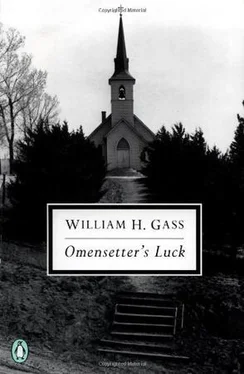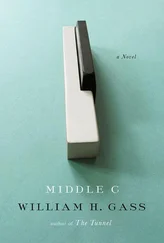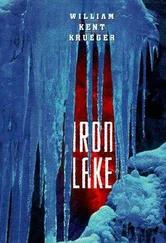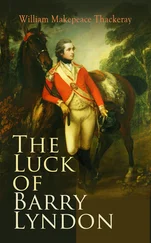They haven't turned… in earnest yet, Omensetter said.
Not Adam but inhuman. Was that why he loved him, Henry wondered. It wasn't for his life — a curse, god knew; it wasn't for the beet-root poultice. It lay somewhere in the chance of being new… of living lucky, and of losing Henry Pimber. He had always crammed humanity in everything. Even the air felt guilty. Once he would have seen each tree along this slope boned humanly and branched with feeling like the black bile tree, the locust, despondent even at the summit of the highest summer. How convenient it had been to find his friends and enemies embarked in tame slow trunks, in this or that bent tree, their aspirations safely in high branches and their fires podded into quiet seed. He could pat their bodies with his hands and carve his name and make up animal emotions for them no fruit could contradict. It was always easier to love great trees than people. Such trees were honest. Their deaths showed.
Come on Henry — what the hell — let's get where we can see.
They were silver in the spring. They were still new green like the river. The sun came to them. The wind turned them. And a dark deep glossy green grew on by the head of summer. It was like the green he sometimes saw when the sun was right and the wind had died cover a stone that was lightly under water. There was hedge green and ivy, slick as slippery elm and cool as myrtle. There was slime green pale with yellow; some that was like moss or grass beneath a rock or the inside of a shuck of corn. There was every shade of green in the world. There was more than the rivers had, more than any meadow.
The wind rushed over the brow of the hill, billowing Henry's coat and flattening Omensetter's hair. Behind them in the valley, the leaves were quiet as if at the hilltop they had sponged the wind. Here the rush covered their ears. mensetter shouted something. Henry's toes curled in his shoes to catch the ground. He sidled awkwardly, his coat lashing his legs until his body seemed to sing like wire.
… the notch.
Henry ledged after him. His coat ballooned. Somehow, in this mad place, he was losing everything. Omensetter vanished. The ground seemed to fall away. He hadn't known the sea had holes but how else did you drown? Then he saw Omensetter's bushy head and he dropped into the notch where the wind roared above them like Niagara Falls.
Henry sat on a rock and pulled his coat round him.
You don't like it, Omensetter said.
Oh no, it's fine.
They had to shout.
The cold stone pressed against him.
Lovely view, they said.
It was a terrifying wind.
I come often, Omensetter said. A boat's out. I wonder whose.
Henry shrugged and held on. He thought of the wild beauty of the trees, his own affection for them, his romantic sentiments, his wretched illness with its lying clarity.
Will you climb here in the winter?
Omensetter made a face.
Too cold. Freeze. Don't you love the noise?
No, Henry thought, I don't love the noise; the wind win wash my wits out.
But in the winter, he reflected, when the sun was in the west, the leafless trees would print the snow. Chamlay's snake fence would lace his south fields. Every bush would blossom, each twig sharply thrown, and every paltry post embark for consciousness as huge. The wind might blow here constantly, it would alter nothing; but this was the season of change, Henry's coat billowed out from him, and Omensetter's countenance escaped into the valley. An immense weariness took hold of Henry now, though the sun in the notch was warming. Of course — he'd been a fool — Omensetter lived by not observing — by joining himself to what he knew. Necessity flew birds as easily as the wind drove these leaves, and they never felt the curvature which drew the arc of their pursuit Nor would a fox cry beauty before he chewed.
Remember?… remember coming, Henry shouted finally, pointing to the western hill.
Omensetter put his head up in the stream where the wind blew away his words.
Ah… uddy… raid it would ray…
You were afraid?
… ott?
Were you afraid of getting wet?
Ah…ur.
You saved my life.
… ott?
I said are you happy in Gilean?
Omensetter left the notch abruptly, and started down. Obedient, Henry followed, and saw between them and the sun a broad-winged hawk like a leaf on the flooding air. The sailor of the wind is loose, he thought; my life is lost down this dead hill. He had raised his arms and now he let them fall. I'm dreadfully sick… stupidly sick. A scientific fact. Quiet giggles shook him. And I've scarcely been alive. Henry Winslow Pimber. Now dead of weak will and dishonest weather. Some such disease. How would that look carved on my stone? He stumbled.". for sweet sakes, Hennie, you'll never have a stone…" I shall be my own stone, then, my dear, my own dumb memorial, just as all along I've been my death and burial, my own dry well — hole, wall, and darkness. I ought to be exposed upon a mountain where the birds can pick my body, for no one could put himself on purpose in this clay. Besides, anyone who's lived so slow and stupidly as I have ought to spend his death up high. His mouth filled. Poor, foolish, stupid bastard, foolish fellow… foolish wards…But I'd have made a worthier Omensetter — all new fat, wild hair, and furry testicles like a tiger's. Henry spat. A scientific fact. The saliva drifted against his coat. And when I arrived in my wagon like a careless western hero, clouds would be swimming in the river. Rain would fall beyond us in the forest, the Ohio like a bright hair ribbon… Gilean — a dream. Lalee. Naa-thing. Lalee.
I have to sit somewhere.
Oh no, keep up. We'll go on down.
Lucky was he? Was he, Henry wondered — with his polished shoes and all his new concerns.
The river disappeared beneath the trees.
They walked by the creek by the hornbeam tree — Omensetter, his hand in his greatcoat pocket where the rent was, his back indifferent as a wall — by elm and oak and maple, in the bowl that tamed by the riverside, toward Henry Pimber's house where Henry followed, by the aspen, by the suede green sassafras, the beech. The silver morning grass was golden and resilient now. The slate was clean, the sandstones rich as brown sugar, and the red clay, softer after sunshine, moist, kept their feet to the slate, the sugar rocks, and the rough, resilient grass.
I've got to rest, Henry said.
The log was stripped of bark and bleached. It lay by the creek like a prehistoric bone.
Oh say, you've been sick, that's right. That hill is sort of steep. How are you feeling now — good?. . fine, that's good.
Omensetter took money from his pocket.
We'll have to move when we can find a place. It's a little wet there for the boy — you understand — it's a little low near the river. Well… You've been kind.
The money emptied into Henry's hand.
I'd better see to Lucy now, Omensetter said.
He swayed rhythmically a moment like a bear.
Lucy will be fine.
Sure — still, she must be watched — the boy…
Omensetter waved. Limbs divided up his back.
Good-bye.
So, Henry thought, well. . he's going to leave the fox where he has fallen. Anyway, that's that. Yes. That. Because it was impossible to speak in a wind. And there was only weather in it, after all. Weather. Leaves. Pollen, he'd been told, from infinite plants. Dust, too, of course. And the grains that carry cooking, bloom, and pine tree to the nose. Seeds naturally. Flies. Birdie song and the growl of bees. Himself — Pimber — rushing along. Yesterday it was the long night rain that fell, misplaced, through morning. Tomorrow? Tomorrow might be calm.
All right. I'll hide high up. I'll do that. Anyway, why speak in a wind? Didn't I wait for a wind to say: you saved my life?
Читать дальше












![William Frith - John Leech, His Life and Work, Vol. 2 [of 2]](/books/748201/william-frith-john-leech-his-life-and-work-vol-thumb.webp)